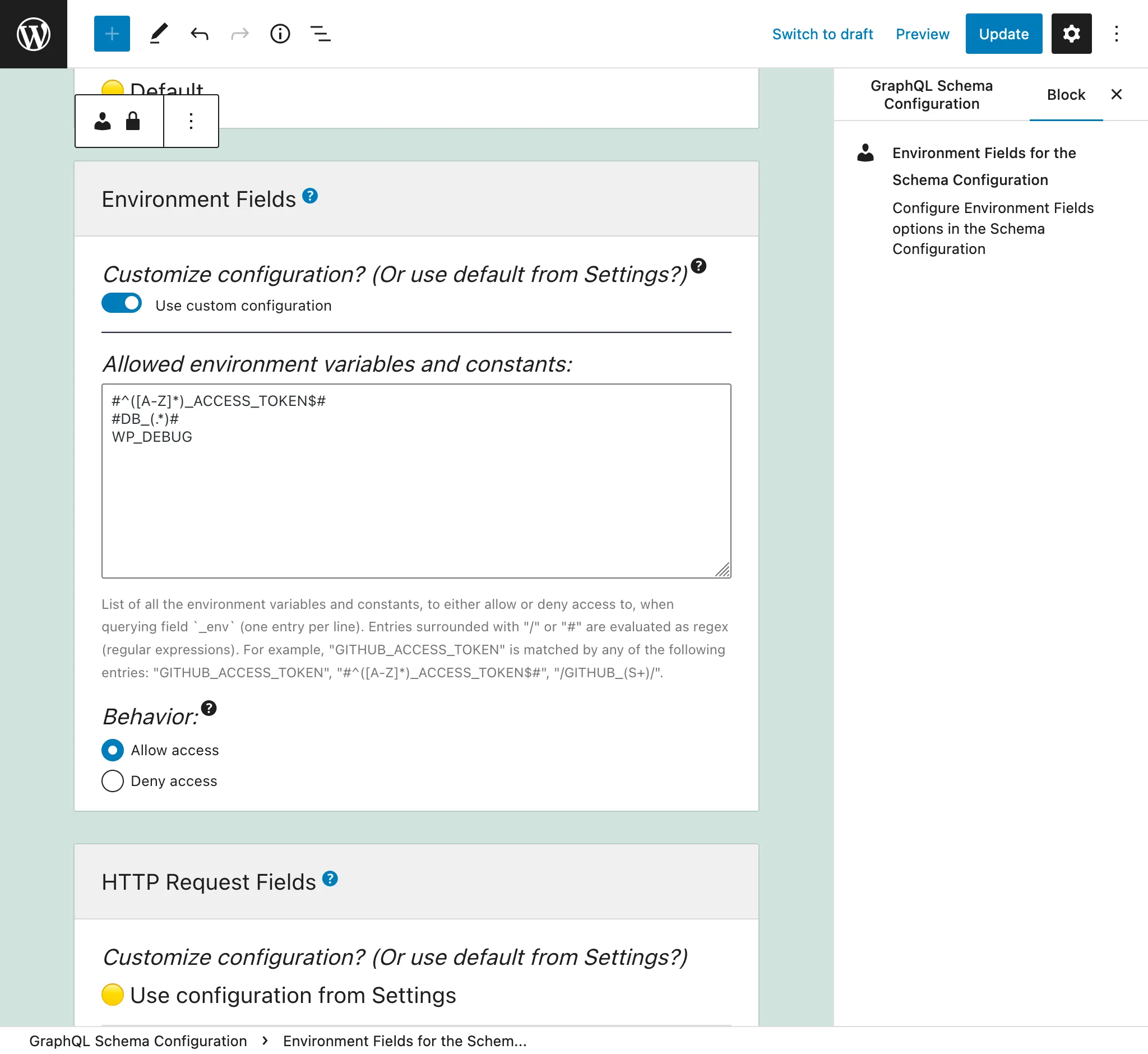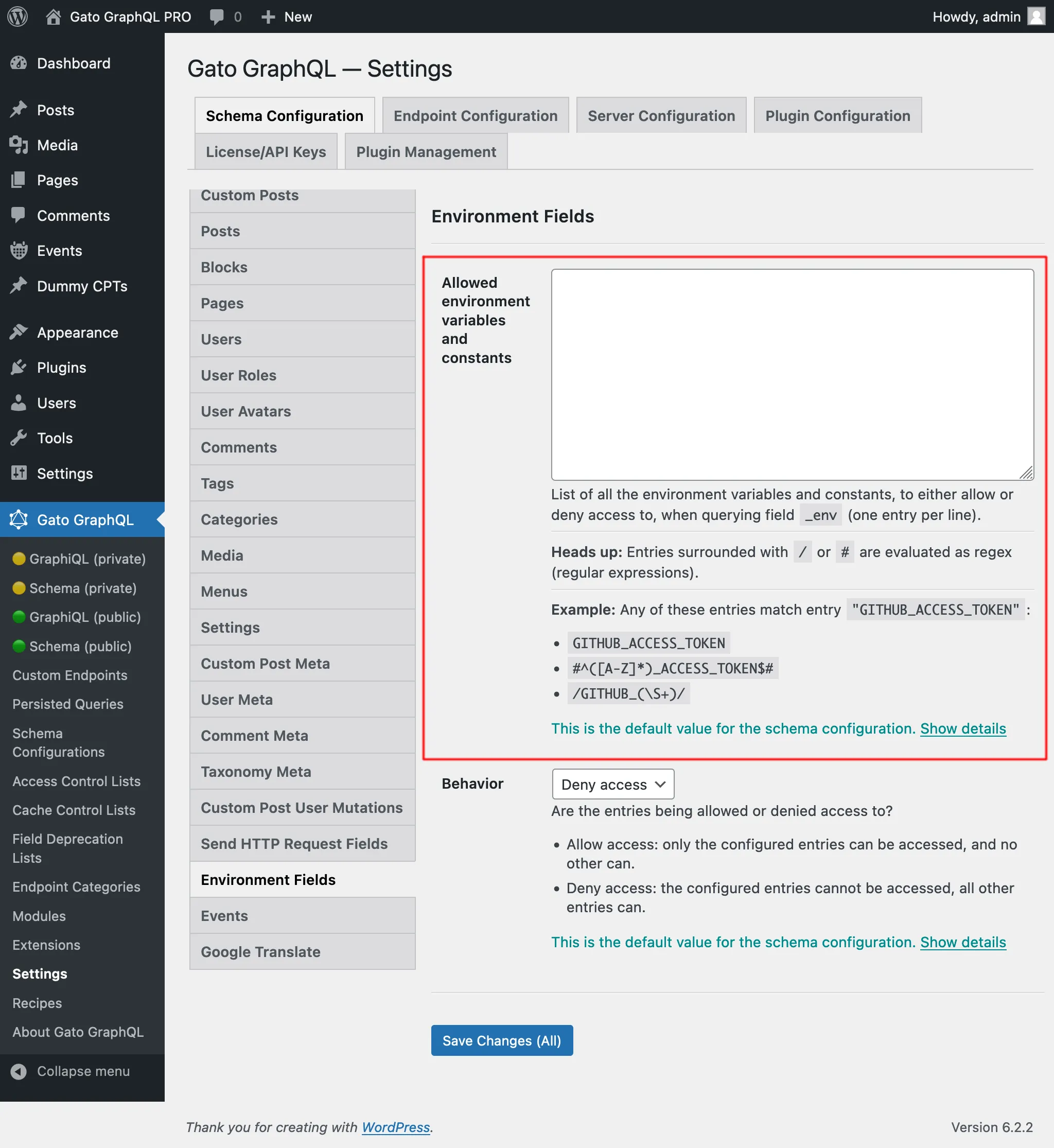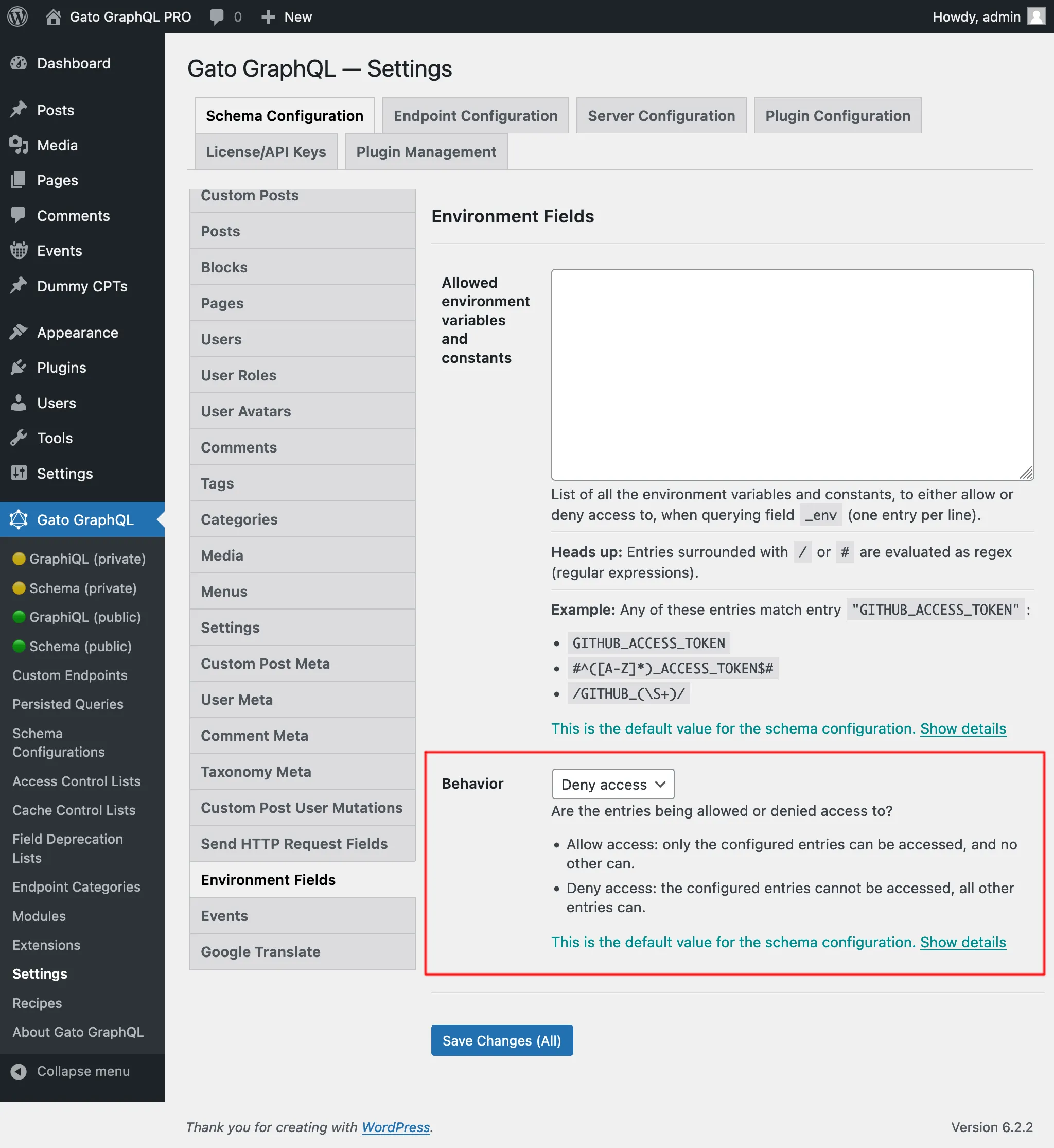PHP Constants and Environment Variables via Schema
Query the value from an environment variable or PHP constant.
Description
This extension adds global field _env to the GraphQL schema, which allows to obtain a value from an environment variable, or from a PHP constant (most commonly defined in wp-config.php, but can also be defined elsewhere).
Due to security reasons, the name of the environment variable and constants that can be accessed must be explicitly configured.
Field _env receives the name of the environment variable or constant under parameter "name", and is resolved like this:
- If there is an environment variable with that name, it returns it
- Otherwise, if there is a constant with that name, it returns it
- Otherwise, it returns
nulland adds an error to the GraphQL output.
For instance, this query retrieves the environment constant GITHUB_ACCESS_TOKEN which we might set-up to access a private repository in GitHub:
{
githubAccessToken: _env(name: "GITHUB_ACCESS_TOKEN")
}This query retrieves the DB configuration defined in the wp-config.php file:
{
dbName: _env(name: "DB_NAME")
dbUser: _env(name: "DB_USER")
dbPassword: _env(name: "DB_PASSWORD")
dbHost: _env(name: "DB_HOST")
}Configuring access to the environment constants
We must configure the list of allowed environment variables and constants that can be queried.
Each entry can either be:
- A regex (regular expression), if it's surrounded by
/or#, or - The full variable or constant name, otherwise
For instance, any of these entries match environment variable "GITHUB_ACCESS_TOKEN":
GITHUB_ACCESS_TOKEN#^([A-Z]*)_ACCESS_TOKEN$#/GITHUB_(\S+)/
There are 2 places where this configuration can take place, in order of priority:
- Custom: In the corresponding Schema Configuration
- General: In the Settings page
In the Schema Configuration applied to the endpoint, select option "Use custom configuration" and then input the desired entries:

Otherwise, the entries defined in the "Environment Fields" tab from the Settings will be used:

There are 2 behaviors, "Allow access" and "Deny access":
- Allow access: only the configured entries can be accessed, and no other can
- Deny access: the configured entries cannot be accessed, all other entries can

Security: Not exposing credentials
Unless our GraphQL API is not publicly exposed (such as when building a static site), we must be careful for the GraphQL query to not expose private data:
- In the response of the query
- In the output when an error happens
- In the logs
For instance, the following query:
{
githubAccessToken: _env(name: "GITHUB_ACCESS_TOKEN")
}...will directly print the credentials in the response:
{
"data": {
"githubAccessToken": "{some access token}"
}
}We can use several of the other features in the plugin to make the GraphQL query secure:
- Field to Input to inject the environment value into another field via a dynamic variable
- Field Response Removal to avoid printing the environment variable's value on the output
- HTTP Client to directly connect to an external service already from within the GraphQL query
For instance, the following query connects to the GitHub REST API using a private access token:
{
githubAccessToken: _env(name: "GITHUB_ACCESS_TOKEN")
# This directive will remove this entry from the output
@remove
# Create the authorization header to send to GitHub
authorizationHeader: _sprintf(
string: "Bearer %s",
# "Field to Input" feature to access value from the field above
values: [$__githubAccessToken]
)
# Do not print in output
@remove
# Use the field from "Send HTTP Request Fields" to connect to GitHub
gitHubArtifactData: _sendJSONObjectCollectionHTTPRequest(
input: {
url: "https://api.github.com/repos/GatoGraphQL/GatoGraphQL/actions/artifacts",
options: {
headers: [
{
name: "Accept"
value: "application/vnd.github+json"
},
{
name: "Authorization"
# "Field to Input" feature to access value from the field above
value: $__authorizationHeader
},
]
}
}
)
}In this query, fields githubAccessToken and authorizationHeader (which contain sensitive data) are both removed from the output, and field gitHubArtifactData will already print the results of the API call, without leaking any of its inputs (eg: an error will print the string "$__authorizationHeader" instead of the variable's value).
